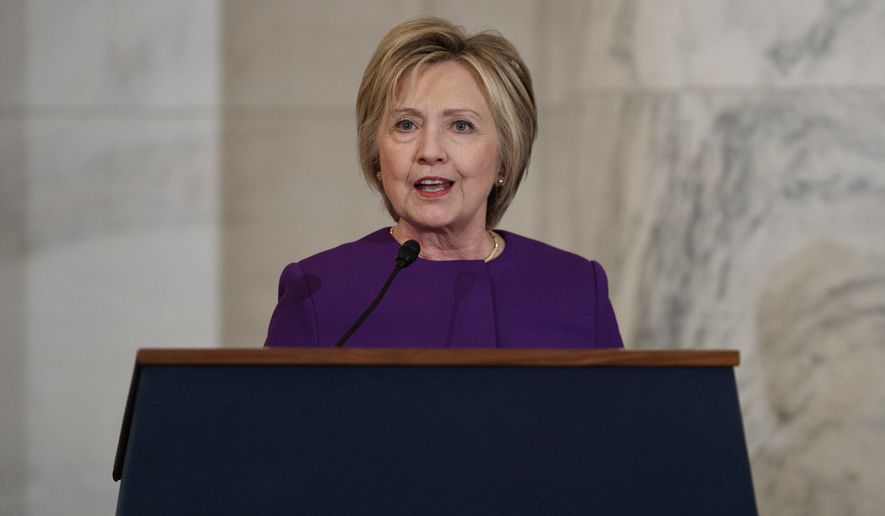OPINION:
“Expert texpert choking smokers,
Don’t you think the joker laughs at you?”
— John Lennon “I Am the Walrus”
On election night at around 6 p.m. a Hillary Clinton political operative went on TV and smugly opined that she believed they had a 95 percent chance of winning. Wow, 95 percent. In statistics we call that a very high level of certainty. But of course five hours later the woman was in tears and the 1 in 20 long shot named Donald Trump came in.
Throughout the race the betting odds gave Hillary Clinton an 80 percent likelihood of winning. That was never the case. This race was always a toss-up with slight odds leaning toward Hillary. But several months ago my friend Jonah Goldberg, who is a very smart guy, insisted over and over on Fox News that Mr. Trump had no chance of winning the race. Stuart Spencer, who is supposed to be one of the wise men of Republican politics and gets paid a lot of money for his sage political advice said a few weeks before the election that “the election is over” and that Mr. Trump had no chance of winning. Zero.
My point is experts are surprisingly wrong surprisingly often. The large majority of political experts and polls in Britain predicted that Brexit would lose. Oops.
A few years before the housing meltdown and the more than $100 billion taxpayer bailout of Fannie Mae and Freddie Mac, Nobel prize-winner Joseph Stiglitz and the future Office of Management and Budget director Peter Orszag wrote a research paper concluding that “the risk to the government from a potential default on GSE debt is effectively zero.” So either the housing bust was a one in a million event … or they had no idea what they were talking about.
Remember Long-Term Capital Management? This company was said to have a computer model developed by Nobel prize winners and other mathematical geniuses that was a magical money making machine. And it made money year after year until it crashed and went bankrupt.
Paul Krugman writes twice a week for The New York Times as their economic sage. He was asked on TV after the Trump election and the stock market sell-off the night of the election, when would the market recover? His sourpuss answer was “never.” A few hours later the market went on a massive bull market run giving stocks one of their best months ever. Yet The New York Times still runs opinion pieces as if he has something wise to say.
A few years ago the dietary experts said fat would kill you and now it’s said to be good for you. In 2005 National Geographic ran a cover story “The End of Cheap Oil.” a few years later we had the shale oil and gas revolution and now the planet is drowning in cheap energy.
My point isn’t to thumb my nose at people who get it wrong. I’ve made many predictions that have been wrong too. But I rarely predict things with the virtual certainty that many “experts” do.
So this is a plea for humility by the experts and a heathy dose of skepticism from the public. Economists say they can predict what job growth and employment will be next year and five years from now. Budget experts predict what the budget deficit will be in five years. Guess what. They have no idea.
The climate change fanatics say that there is no doubt about global warming and its coming catastrophic effects. They say that the science is “settled.” Of course it is not. How is shutting off debate good for scientific inquiry? How about admitting that you may be wrong?
Young people today treat experts as if they are godly. Instead of questioning authority — which is a healthy thing, they swallow the swill unthinkingly. On campuses I always have to tell students: don’t believe everything the teachers tell you. A lot of it is false. As Napoleon Bonaparte once asked: What is history but a fable agreed upon?
I spent the early years of my career working for the great myth buster Julian Simon. Julian challenged almost all of the conventional wisdoms of the 1970s: that the earth was overpopulated, that we were running out of energy, that food shortages would lead to mass starvation, and air pollution would get worse. He was mostly right, the scientific consensus was often wrong. Yet many of those who have gotten the story consistently wrong (Mr. Krugman, the pollsters, the Sierra Club, the dieticians) still make predictions with absolute certainty.
Wisdom is knowing what you don’t know, which for all of us, especially the so-called experts, is a lot. This Christmas is a good time to remember that the only person who was ever flawless was hung from a cross.
• Stephen Moore is a Freedom Works consultant and a Fox News contributor.




Please read our comment policy before commenting.